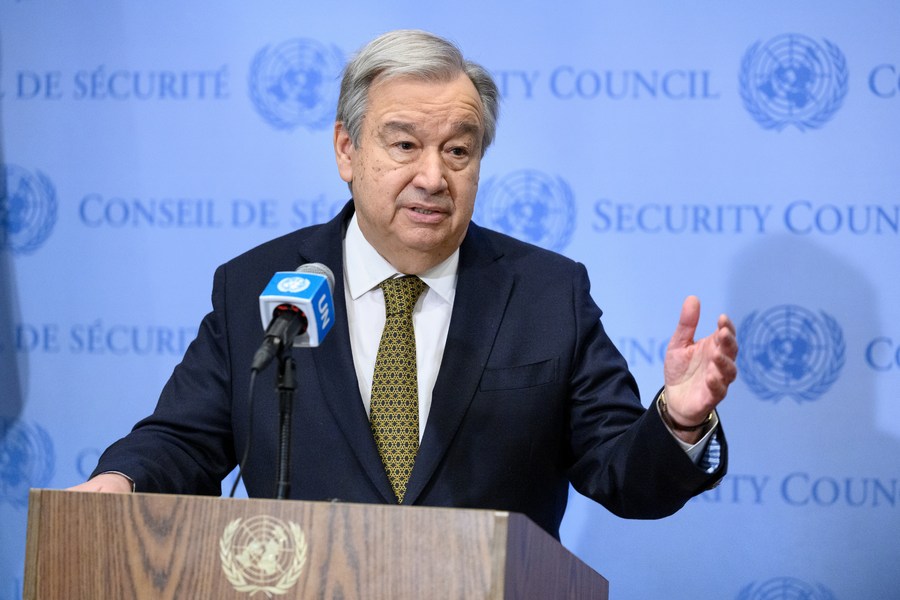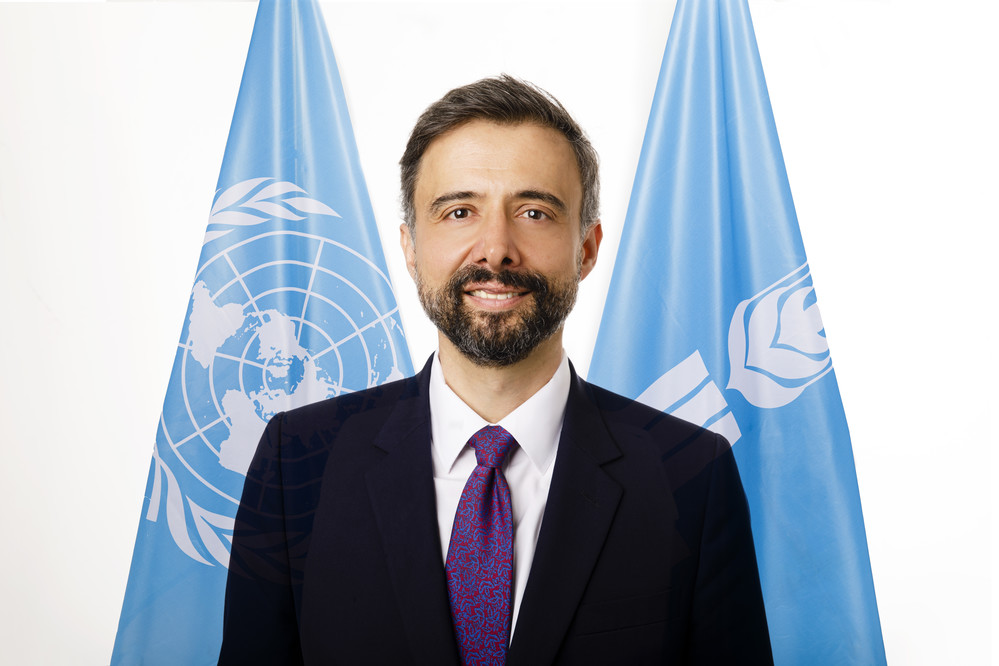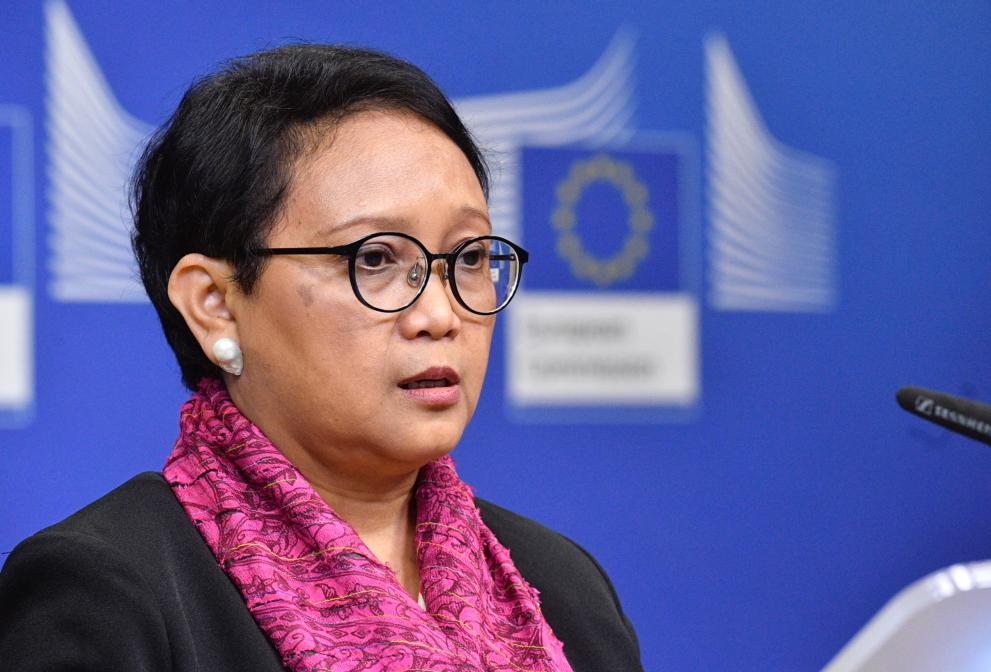UN Water
UN-WatER
Water Conservation is essential for security, prosperity, and justice.
UN Secretary-General
The theme of this year’s World Water Day reminds us of a cold, hard truth: glacier preservation is essential for security, prosperity, and justice.
Glaciers are nature’s vaults, holding a precious resource: nearly 70 per cent of all freshwater on Earth.
As glaciers melt, they quench the thirst of communities, sustain ecosystems, and support agriculture, industry, and clean energy. But scorching temperatures are draining these vaults at record speed – from the Himalayas to the Andes, from the Alps to the Arctic.
Deadly floods are being unleashed, impacting billions of people, in cities and rural areas alike. Low-lying communities and entire countries are facing existential threats, while competition for water and land is aggravating tensions.
Glaciers may be shrinking, but we cannot shrink from our responsibilities.
The Pact for the Future, agreed by countries last September, commits countries to ambitious action to protect, restore and sustain the world’s glaciers and strengthen community resilience. I have also appointed a Special Envoy on Water to strengthen international cooperation on the sustainable management of freshwater resources.
Action this year is critical. Every country must deliver strong national climate action plans – or NDCs – aligned with limiting global temperature rise to 1.5 degrees Celsius.
Funding for climate adaptation and resilience must increase, supported by reform of the international financial architecture to unlock sustained and massive climate finance.
Together, let’s act to preserve these frozen lifelines for humanity.
UN Secretary-General, António Guterres
UN-Water Chair
After a decade of record-breaking heat, glaciers are melting faster than ever. These are the largest reservoirs of fresh water on Earth – and they are shrinking before our eyes.
In 2023 alone, glaciers lost more than 600 gigatons of water. That’s 240 million Olympic swimming pools – the largest loss registered in half a century.
The speed and scale of glacial retreat is already making the water cycle more unpredictable and extreme, devastating communities and ecosystems.
Changes in meltwater flows are causing floods, droughts, landslides and sea-level rise.
Our water and sanitation systems, food and energy production, and the integrity of our ecosystems are at risk around the world.
World Water Day 2025, under the theme ‘Glacier Preservation’, is celebrated alongside the inaugural World Day for Glaciers.
It also marks the beginning of the International Year of Glaciers’ Preservation 2025 and the Decade of Action for Cryospheric Sciences, which will rally global efforts to protect our glaciers, ice sheets, and permafrost for the future.
We must slash carbon emissions to save what is left of the cryosphere. And we must support communities to adapt to new and changing climatic conditions.
The United Nations System-wide Strategy on Water and Sanitation reinforces our commitment to, and provides a roadmap for, sustainable water management and coordinated global action in the face of these challenges.
The disappearing glacier has become a defining image of climate change – and a warning of the future we must avoid.
Saving our glaciers is a survival strategy for people and the planet – one we must pursue together without delay.
UN-Water Chair, Álvaro Lario
UNSG’s Special Envoy on Water
Water is the bloodline of humanity and glaciers are the icebound heart of the Earth.
World Water Day 2025 – an Opportunity for Collective Actions!
For over three decades, World Water Day has been more than just a day of commemoration. Each year, it serves as a pivotal opportunity for reflection and evaluation that leads us to a renewed collective commitment for the world’s water.
The challenges facing our water are becoming ever more complex – too little, too much, or too polluted. With limited time, we must intensify and scale up tangible efforts to ensure lasting solutions. Collaboration is key – to building resilience and sustaining water as the source of our lives. Because there is no life without water.
World Water Day 2025: Glaciers Preservation
The theme of this year’s World Water Day provides a unique opportunity. It encourages us to reflect on the current situation of the world’s glaciers. As the Earth’s frozen reservoirs, glaciers sustain the lives of nearly 2 billion people. Through glaciers and their meltwater, a quarter of the world’s population obtains drinking water, ensure food production, and generate clean energy.
Unfortunately, records show a rapid melting of the world’s glaciers. 2023 marked the largest mass loss of glaciers in the last 50 years. This threatens water supply and poses a risk of disasters to those who depend on glaciers for living. Furthermore, it contributes to sea level rise, impacting billions world-wide.
UNSG’s Special Envoy on Water
VOICE OF WatER
A Voice for Water Conservation for the Humanity





